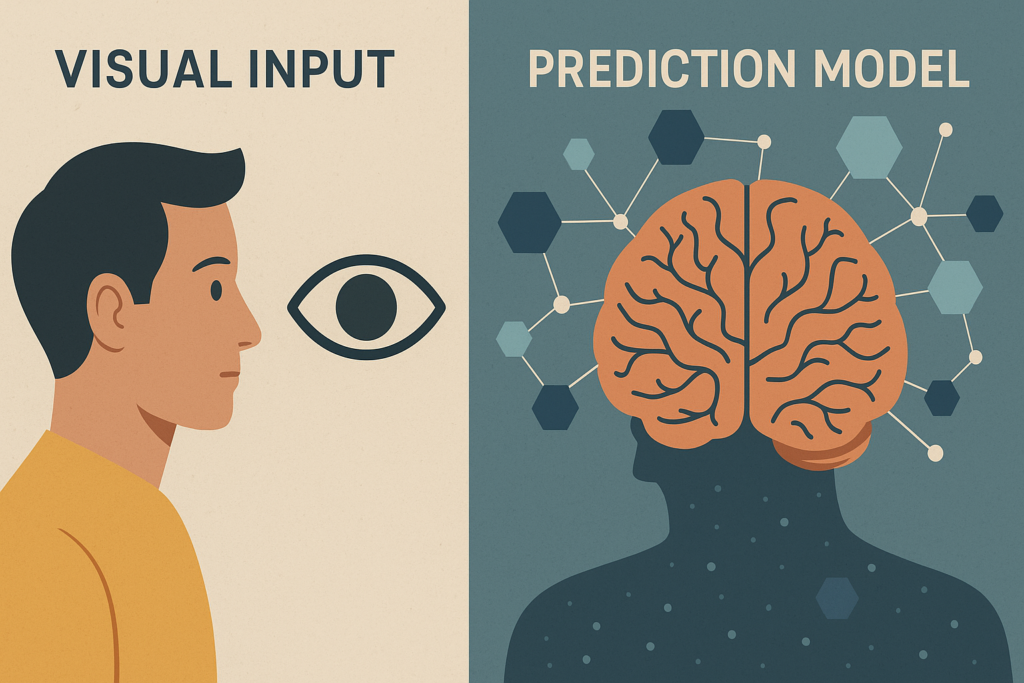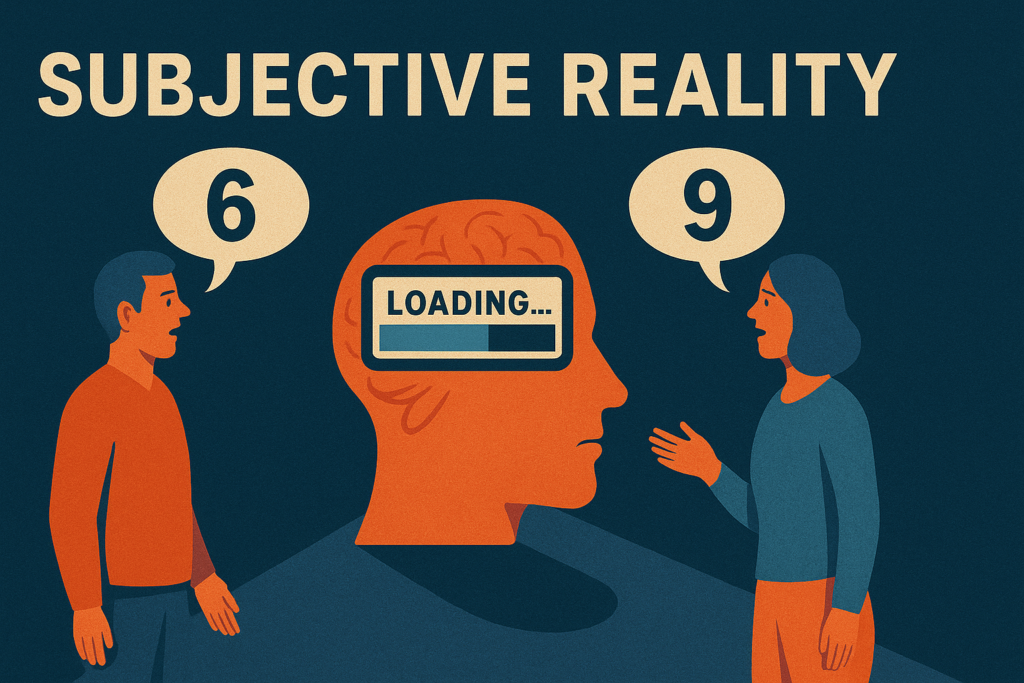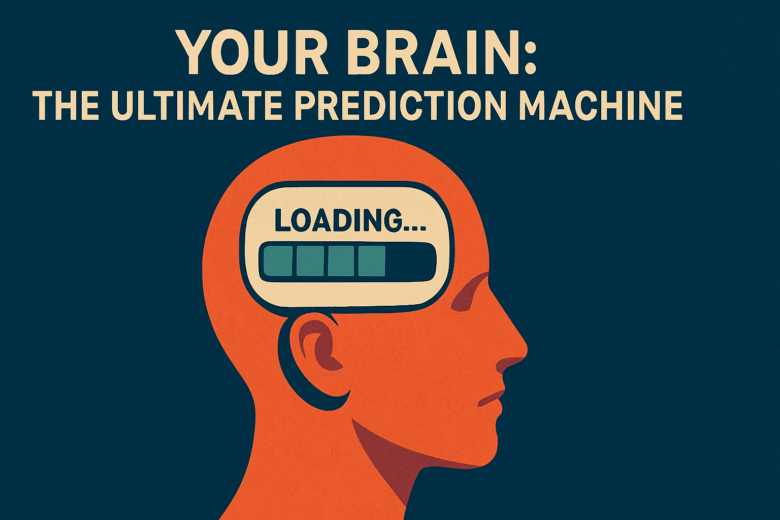Fun Fact: Your brain receives more information from inside your head than from your senses—and it often fills in the gaps without telling you.
Imagine for a moment that nothing you see, hear, or feel is actually “real.” Not because you’re in a simulation or dreaming—but because your brain is always one step ahead, guessing what’s out there before it checks.
That’s not science fiction—it’s neuroscience.
In “Your Brain Is a Prediction Machine: Why Reality Is a Guess,” we explore one of the most mind-bending ideas to emerge from modern brain science: you don’t perceive the world as it is. You perceive it as your brain expects it to be.
And in an era of misinformation, echo chambers, and illusions both digital and emotional—this has profound consequences.
The Predictive Brain: How It Actually Works
Traditionally, we thought of the brain as a passive sponge. Sensory organs like the eyes and ears send data, the brain processes it, and voilà—reality.
But the predictive processing model flips that.
According to this model, the brain works more like a prediction engine:
- It builds a model of the world based on past experiences.
- It uses that model to predict what’s coming next.
- It checks sensory input against that prediction.
- It updates the model if it was wrong.
In short: you’re hallucinating all the time—and checking your hallucination against reality.
Neuroscientist Dr. Karl Friston, one of the pioneers of this theory, describes it this way: “The brain is constantly minimizing prediction error.”
Real-Life Examples: Guessing Your Way Through Reality
You don’t have to be a scientist to see this in action.
The Dress
Remember that viral photo of the blue/black vs. white/gold dress? It wasn’t your eyes fooling you—it was your brain making different predictions about lighting.
Phantom Phone Vibrations
You think your phone buzzed, but it didn’t. Your brain expected it to happen—so it created the sensation before reality could contradict it.
Autocorrect Failures
Your brain “autocorrects” visual or auditory input just like your phone does with text. When someone says something unclear, you don’t hear gibberish—you hear what your brain assumes they meant.
Your reality isn’t raw data—it’s the result of predictive software running silently in your head.

The Science Behind the Guesswork
Let’s break down what makes this possible:
- Bayesian Inference: This is a statistical model where predictions are updated as new information comes in. The brain seems to follow a similar logic—balancing prior beliefs with new input.
- Top-Down vs. Bottom-Up Processing:
- Bottom-up: Information flows from the senses to the brain.
- Top-down: The brain uses existing models to shape how it interprets sensory input.
- Prediction is mostly top-down.
- Neural Feedback Loops: The brain is full of loops. What you perceive in the visual cortex, for instance, is shaped by both the incoming image and signals from the frontal cortex predicting what you’ll see.
In experiments where people are shown blurry or incomplete images, their brains often “fill in” the blanks based on context—and they believe they saw the real thing.
Hallucinations, Delusions, and Mental Health
If perception is prediction, then what happens when prediction goes wrong?
- Schizophrenia may involve the brain putting too much weight on internal predictions and not enough on sensory correction—leading to hallucinations.
- Depression might reflect a prediction system stuck in a loop of negative expectations.
- Anxiety could be seen as the brain constantly predicting threats—even when they aren’t present.
This model is influencing new treatments in psychiatry, where mental illness is seen less as a “chemical imbalance” and more as a “prediction error disorder.”
Artificial Intelligence (AI) and the Predictive Brain
Interestingly, AI (Artificial Intelligence) is being designed to mimic this predictive process.
- Deep learning networks are now trained using predictive models—where an AI system “guesses” what’s coming in a sequence and adjusts its model accordingly.
- Google DeepMind and OpenAI, companies leading in AI development, both incorporate prediction-based architectures in their machine learning algorithms.
Understanding how the human brain guesses could help us build better, more intuitive machines.

Perception Is Personal: Why We All Live in Slightly Different Realities
If the brain is constantly guessing—and if those guesses are based on our unique pasts—then everyone’s reality is a little bit different.
- A soldier hears a door slam and thinks it’s gunfire.
- A mother hears her baby’s cry in a crowded room when no one else does.
- A person from one culture interprets a facial expression completely differently from someone in another.
We don’t just interpret the world—we predict it through our personal histories.
So… Is Reality Just a Shared Guess?
Kind of, yes.
The best we can do is agree on enough predictions to function together. Language, culture, religion, politics—they’re all built on shared models of the world.
But when those models diverge too much—when your prediction machine and mine are too different—we stop understanding each other.
This is not just a psychological curiosity. It’s a social crisis.
Conclusion: The Brain That Dreams Before It Sees
“You don’t see with your eyes. You see with your brain,” says neuroscientist Dr. David Eagleman.
And your brain is guessing—even now. It guessed what this blog would say before your eyes read the words. If the predictions matched well, you felt it made sense. If not, you stopped reading.
Understanding that reality is a guess doesn’t mean giving up on truth. It means we have to stay humble, flexible, and curious. Because the more we understand our biases—the better guesses we can make together.
So next time you say “I saw it with my own eyes,” pause and ask: Did you really?
Author’s Note
Your brain is trying its best—it just doesn’t always get it right. The idea that reality is a prediction isn’t meant to unsettle you, but to empower you. Once you know you’re guessing, you can choose to guess better.
G.C., Ecosociosphere contributor.




